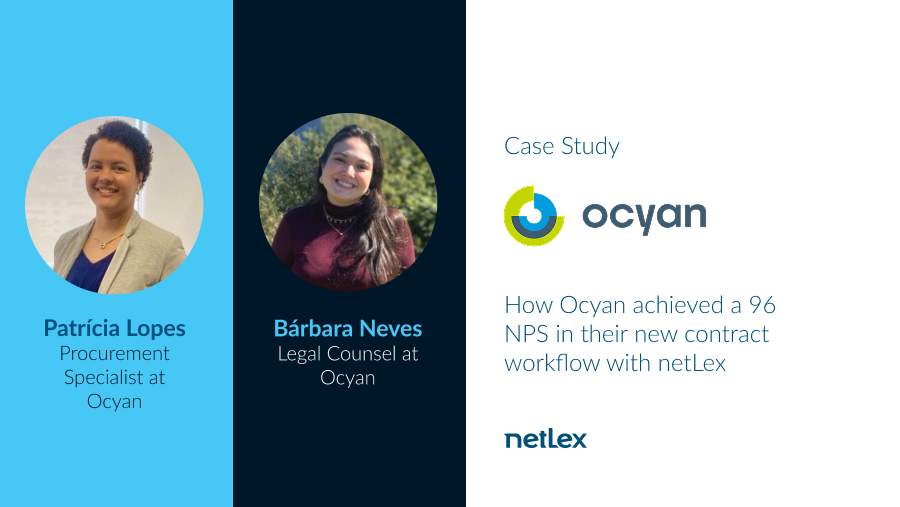The Challenges
Before the implementation of netLex, Ocyan's sourcing team negotiated around 290 contracts with suppliers, including new contracts and renewals. With the high volume of contracts for a lean team and the absence of a centralized and automated flow, the team faced difficulties in managing the negotiation and signing process of drafts in an agile and efficient manner.
The lack of visibility and traceability in the workflow, which depended on emails for communication between the parties involved, made it difficult to track the status of the negotiation and approval stages.
In addition, the management of drafts after signing presented challenges. The lack of adequate control over essential clauses, such as those related to term and adjustment, made it difficult to ensure that contracts were monitored and fulfilled effectively over time, which increased legal risks for the company. There was also a need to ensure that the compliance and data protection team was involved in 100% of the contracts that could pose some risk to Ocyan, which was very complex to control via email.
Finally, without a unified tool, it was not possible to measure team demands, track SLAs, or define clear KPIs for the operation. The absence of these indicators hindered the analysis of team performance and the identification of opportunities for improvement.
Main Problems Identified:
- Excessive time in the signature flow: the process took an average of 30 days, impacting the agility of operations, a critical factor for a company in the oil and gas sector, where efficiency in the supply chain is essential to ensure the continuity of operations.
- Difficulty in tracking: the exchange of documents depended on emails, hindering the visibility of the status of contracts and the measurement of the team's work.
- Dependence on email notifications: the visibility of information was limited, and those involved depended exclusively on email notifications, hindering knowledge management during the negotiation.
- Little control over essential clauses: such as GDPR and compliance, increasing legal risks.
- Absence of KPI traceability: the decentralization of the flow made it impossible to measure demands, track SLAs, and analyze team efficiency, hindering the strategic management of the contractual process and the establishment of a data-driven area.
- Absence of structured draft templates: which demanded constant revisions, increasing the time spent by legal for review and by sourcing for preparation, in addition to hindering the agility and efficiency in the formalization of contracts.
These challenges directly impacted the agility of contracts and made the work of the involved teams more bureaucratic and complex.





 Patrícia Lopes, Sourcing Specialist at Ocyan
Patrícia Lopes, Sourcing Specialist at Ocyan Bárbara Neves, Legal Counsel at Ocyan
Bárbara Neves, Legal Counsel at Ocyan





